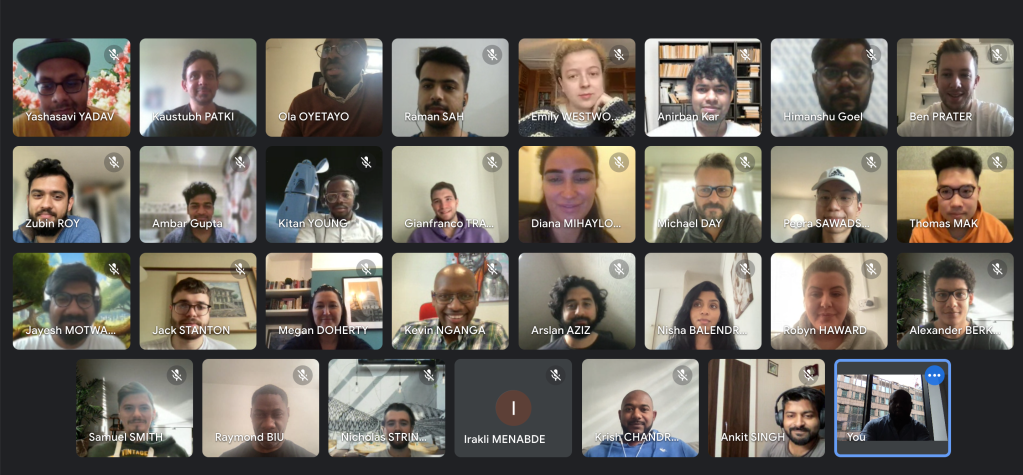Verto, a global B2B payments platform that allows small and medium-sized enterprises (SMEs) to make payments to their suppliers, today announced that it has closed $10 million in Series A funding.
Quona Capital, an emerging fintech-focused venture capital firm, led the round. Other firms also participated, including Treasury, founded by Betterment’s Eli Broverman and Acorns’ Jeff Cruttenden; Middle East Venture Partners (MEVP); U.K.-based TMT Investments; Unicorn Growth Capital; Zrosk Investment Management; and P1 Ventures.
The lack of interoperability between African currencies is primarily behind why a Kenyan business owner who wants to pay an invoice to another business owner in South Africa with either shillings or rands ends up using the dollar — the currency that powers almost 80% of Africa’s bilateral trade.
As trade and supply chains become increasingly global, international payments remain a complicated and expensive proposition. The case is particularly problematic in emerging markets like Africa, where local currencies are less liquid than those in developed markets.
While fintechs are creating solutions around peer-to-peer payments and remittances, most are consumer-focused. Meanwhile, the B2B market, accounting for 30% of the world’s global imports and 45% of total employment in emerging markets — is largely untouched.
Hence the reason why Ola Oyetayo and Anthony Oduwole started Verto in 2018. And instead of focusing on Africa, the two U.K.-based Nigerians took an emerging markets approach.
Initially, the YC-backed company acted as a currency exchange marketplace to help businesses transact illiquid currencies into liquid pairs. But upon gaining transaction and subsequently raising a $2 million seed round two years ago, feedback from users highlighted the importance of providing cross-border payments as well.
VertoFX raises $2M for its African and EM currency trading platform
It is not hard to see the value chain: a business going to a platform to swap or exchange one currency for another invariably does that intending to pay another business in a different country.
“We’ve now evolved more from not just being a currency exchange marketplace to a full suite of cross border payments product for businesses,” Oyetayo told TechCrunch.
On the Verto platform, businesses can exchange money in over 200 countries across 39 currencies, up from 120 countries and 19 currencies the last time the company spoke with us.
Per its website, Verto is designed for freelancers, SMEs and corporates, providing payments, exchange and multi-currency accounts to each segment.
These business owners can send cross-border B2B payments at FX rates up to nine times cheaper than they could through traditional banks, CEO Oyetayo said. And most importantly, without a fee.
A no-fee proposition has caught on well with a userbase of over 2,000 businesses, each transacting an average of $30,000. Together they have facilitated billions of dollars in transaction volume yearly, according to the company.
The CEO says since the start of the pandemic, Verto’s user growth has grown 11x and 8x in revenue without giving specific numbers.
Similar to most fintechs, the company has benefited from a global shift of people moving to digital methods of payments and the fact that more homogeneous businesses in Africa are transacting with each other through digital channels.
Not only can businesses use Verto for their personal payments needs, but they can also piggyback on the company’s rails to build solutions for their end clients. For instance, an investment management platform that allows customers to buy stocks on its platform can use Verto to convert currencies and facilitate pay-ins and payouts.
“That solution is geared towards developing markets where it takes businesses to pay customers days or weeks to make payments,” said Oduwole. “Our in-house compliance solution allows them to transact and get settled instantly, or in some cases a couple of hours.”
If cross-border payments are free, how then does the company make money? Verto takes a small amount of commission when businesses use its currency exchange service and charges a 1% commission when they use its price discovery marketplace solution.
In the future, at some point, Verto “will potentially start making revenue of API calls, and also revenue off payments made on the platform,” the CEO said.
In a statement, Monica Brand Engel, the co-founder and managing partner at lead investor Quona Capital (also a backer of Nigeria’s Cowrywise), hails the platform’s ability to address problems businesses face with low visibility, slow speeds and high costs of cross-border payments. Verto is doing “important and impactful work,” she said.
Before the end of the year, Verto expects to increase the list of currencies on its platform to 51, CTO Oduwole said. The company will use the investment to achieve that while building its platform to enable businesses to move money across borders more efficiently, it added in a statement.
Interestingly, Verto has only six African currencies on its platform; they cover 60% of the continent’s GDP. And with the B2B global payments industry expected to grow to almost $200 trillion by 2028, Verto plans to accelerate its geographical expansion into more markets in Africa and the Middle East.
“We want to get to a point in the future where someone can easily swap a Ghanian cedi to rand without having to transact with dollars or euros,” the founders said.
They also pointed out that the company, in a way, drives financial inclusion for businesses that could not move money from, say, India to Turkey without going to a bank. Verto is placing businesses in underserved regions on an even playing field as their counterparts in developed markets, said the CEO.
“Ultimately, we want to help a business in an emerging market send money to another business elsewhere, as easy as sending a text message.”































Comment